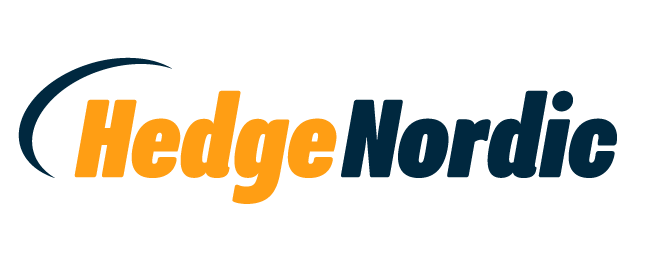Prenumeration
Vem äger bolaget?
All ägardata du vill ha finns i Holdings!
Stockholm (HedgeNordic) – In the fall of 2021, one year shy of celebrating the ten-year anniversary for small-cap-focused hedge fund Origo Quest, founder and CIO Stefan Roos began contemplating the launch of a new fund. This new fund would employ a long-only approach to target even smaller Nordic micro- and small-sized companies. Managed by Roos and newly appointed co-portfolio manager Christoffer Ahnemark, Origo Seleqt was launched in March 2022. During its two-year journey, the fund has navigated a challenging environment for smaller-cap stocks, marked by higher interest rates and geopolitical tensions, among other concerns.
“It was in the fall of 2021 that the project took off after it became obvious to us that this type of fund was missing,” recalls Stefan Roos, who founded Origo in 2012 and soon launched Origo Quest. “There were plenty of regular ‘small cap’ funds, but what was missing was a fund that de facto focused on genuine small caps and was also active and not over-diversified,” he emphasizes. The idea of a long-only fund had been brewing for quite some time. “Our hedge fund, Origo Quest, which recently celebrated its 10-year anniversary, has been a great source of inspiration.”
Origo Quest has delivered an annualized return of around nine percent since launching in February 2013, with approximately one-third of the volatility of the small-cap index. “Both the long book and short books have contributed strongly in different periods, but the contribution from the long-book really stands out over the whole period with an annualized return of 13.2 percent versus 10.3 percent for a relevant small-cap total return index,” highlights Roos. “We were asked more than once if we could deliver the long book separately, and we finally did, even though Seleqt is not an exact replica of Quest’s long exposure.”
There are approximately 1,200 small-cap stocks listed in the Nordics, with Origo Fonder’s research shortlist encompassing about 600 stocks. “We estimate that 80 percent of all these companies lack sell-side coverage, and the majority is outside Sweden,” explains Roos. “This is a huge alpha opportunity for us that we absolutely don’t want to miss.” To address this gap, Origo Fonder launched Origo Seleqt in March 2022, focusing on Nordic micro- and small-sized companies. However, the environment for smaller-sized companies has been challenging during this two-year journey.
Market Environment During the Two-Year Journey
Higher interest rates typically create a tougher environment for small caps, as they reduce investors’ risk appetite and create a more difficult financing environment for smaller businesses. “In 2022 and the bulk of 2023, strategies focused on micro- and small-caps performed weakly,” acknowledges Stefan Roos. “Rising interest rates, geopolitical crises, and supply chain bottlenecks proved too much for an asset class that, in the short term, is often governed by changes in liquidity and risk premium rather than by earnings growth.”
“However, as always, this is a pattern that is cyclical, and the reversal in the fourth quarter of 2023 did not come as a complete surprise to us,” says Roos. Origo Seleqt surged 13 percent in the final two months of 2023, ending the year in positive territory at 5.9 percent. The fund gained an additional 2.8 percent in the first two months of 2024 following a strong January showing. “The index has been a difficult opponent, and we are more or less in line with the index, but ahead of similar fund strategies,” notes Roos. Origo Seleqt has incurred a cumulative loss of one percent since inception, smaller than the low double-digit percent loss sustained by its comparison group, consisting of major banks’ funds.
“As interest rates begin to ease and the broader macroeconomic outlook improves, one may anticipate increased flows into small caps as risk appetite resurges. “Many small companies were, and still are, far too undervalued given the cash flows they produce,” concludes Roos. “On an aggregate level, we think small-cap earnings are holding up better than expected, so it will be interesting to see where the valuations will be when demand also picks up.”

